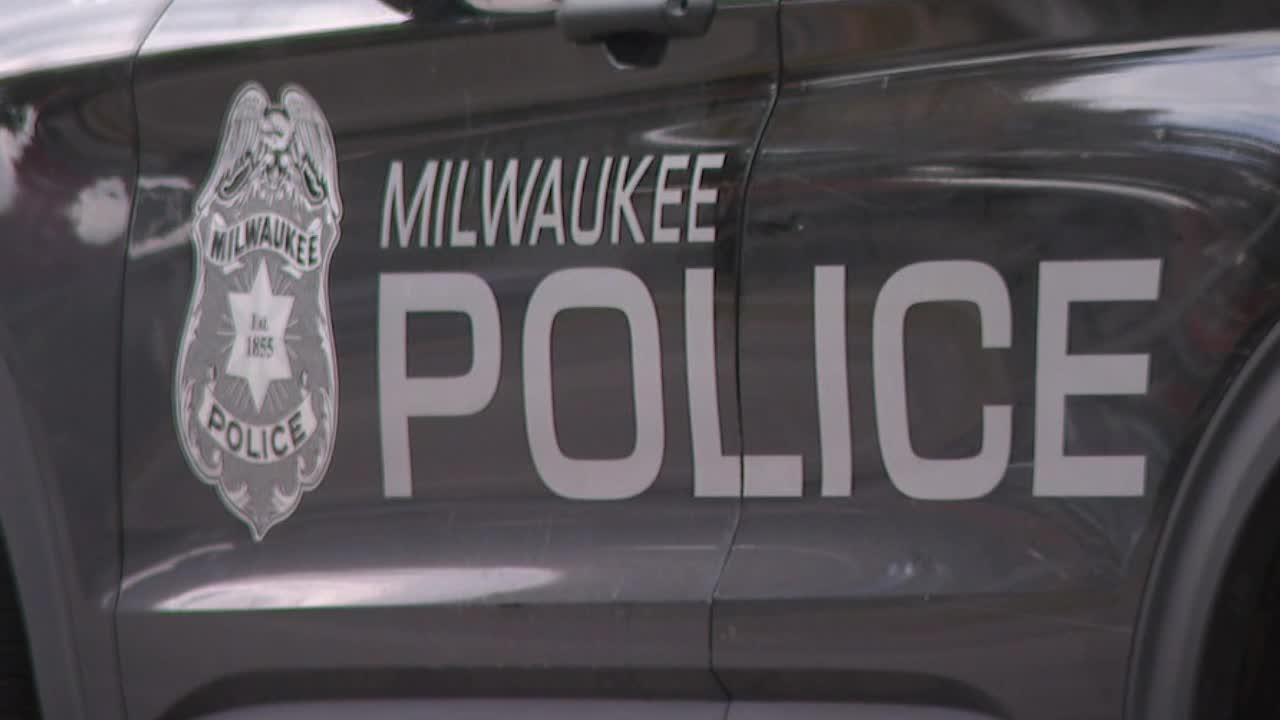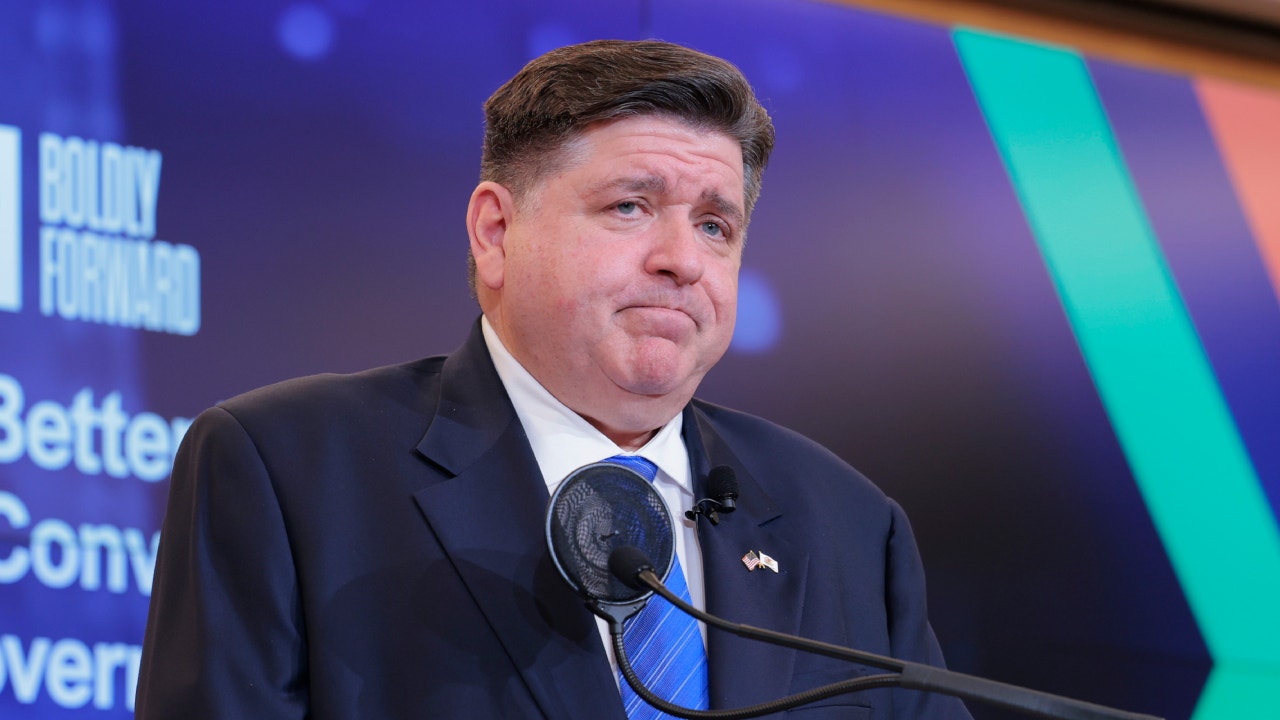Wisconsin
13-year-old James Yoblonski missing for more than a month, may be trying to live off the grid in Wisconsin

The worried father of a 13-year boy who disappeared more than a month ago in a possible attempt to survive “off the grid” plans to mortgage his home in order to offer a cash reward for his safe return.
William Yoblonski, of Reedsburg, is offering a $10,000 reward for tips that bring his son, James Yoblonski, home after the child ran away on June 12 and hasn’t been seen or heard from since, he told WiscNews Monday.
“The $10,000 reward is only if he’s found,” the dad said. “In the last three weeks, we haven’t gotten any tips or anything.”
Sheriff’s deputies said that they believe James ran away from home to go on a survivalist mission.
The 13-year-old was trying to live “off the grid,” and investigators found evidence of a makeshift campsite they believe the boy created in a state park, Sauk County Sheriff Lt. Steven Schram told WiscNews.
James allegedly drove off in his family’s van and may have taken his father’s firearm as well as two survival guidebooks with him, police said, according to WKRC.
Cops tracked James’ cellphone to an area near Sauk Hill and US Highway 12, where they found the van abandoned on the side of the road and the phone nearby the same day he was reported missing.

Investigators found various items they believe belonged to James at the campsite as they searched Devil’s Lake State Park — which offers visitors hundreds of campsites as well as showers, restrooms and drinking water taps.
William Yoblonski told WiscNews that he believes someone may have picked up his son since searchers have not been able to find him or any signs of him since the discovery of the first campsite.
“Come out from wherever you’re hiding,” the concerned father said he would tell his son. “We want you home. We love you very much.”
The Sauk County Sheriff’s Office has no updates on the missing child case, a detective told the local publication. The office last issued a statement about James’ disappearance on July 7.
Anyone with information on the whereabouts of James Yoblonski is asked to contact the Sauk County Sheriff’s Office at 608-355-4495.

Wisconsin
Smith: Manitowish Waters latest in trend of Wisconsin communities passing wake-enhanced boating restriction
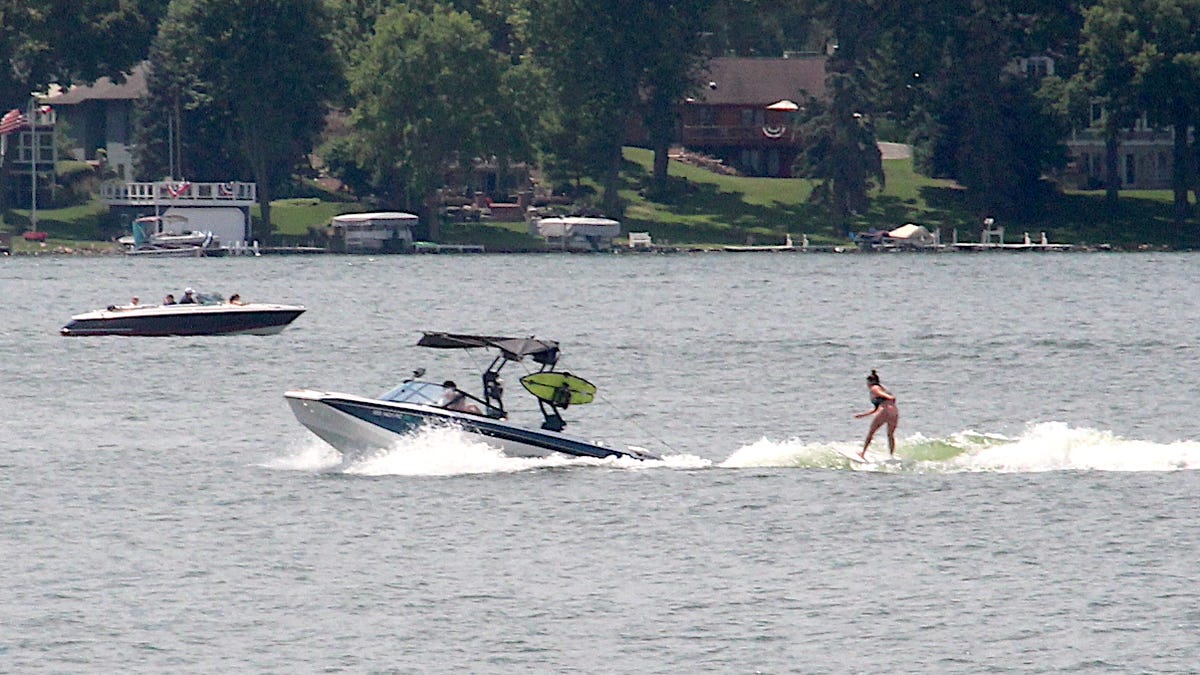
See the impact wake boats are having on Wisconsin’s inland lakes
Powerful wake boats, designed to create maximum turbulence for tubing and surfing also drastically diminish vegetation and aquatic life along lake bottoms.
Lou Saldivar, Milwaukee Journal Sentinel
- The Town of Manitowish Waters in Wisconsin passed an ordinance restricting wake-enhanced boating on nine lakes.
- This is part of a trend in Wisconsin, with 54 towns passing similar ordinances.
- Wake surfing, while popular, has led to complaints about shoreline erosion and conflicts with other lake users.
- Legal challenges and legislative efforts are ongoing regarding wake-enhanced boating regulations.
Supervisors of the Town of Manitowish Waters passed an ordinance June 10 on wake-enhanced boating in its jurisdiction.
The rule prohibits artificial wake enhancement activities on nine lakes (over 50 acres in size) within the town’s borders, including seven lakes on the Manitowish Chain, a northern Wisconsin destination very popular for boating and fishing.
The town’s vote is the latest in a statewide trend toward local control of wake-enhanced boating. The rules typically prohibit “artificial wake enhancement” activities but allow use of wake boats.
Including Manitowish Waters, 54 Wisconsin towns have passed similar ordinances, according to Richard Phillips of the Last Wilderness Alliance, a Presque Isle-based nonprofit organization that helps towns establish the rules.
Wake-enhanced boating involves use of a special power vessel with water-filled ballast tanks to increase displacement and create large waves for the enjoyment of surfers and tubers.
The waves, often 2 to 3 feet high, are big and strong enough for surfers to ride without a tow rope.
The activity is generally permitted on any Wisconsin water where power boats are allowed to make a wake, typically 100 feet or more from shore in lakes greater than 50 acres in size.
The form of water recreation is relatively new but has been increasing in popularity in Wisconsin, according to Darren Kuhn, Department of Natural Resources boating law administrator.
Wake surfing and tubing has provided a new form of fun but also led to many complaints, including reports of or concerns for increased shoreline erosion, damage to lake beds and fish habitat and conflicts with other lake users.
A half dozen states have passed laws on the topic in recent years. In 2022 and 2023, Alabama, Georgia, South Carolina and Tennessee enacted rules requiring wake-enhanced boating to take place at least 200 feet from shore or docks.In 2024 Vermont passed a statewide law stating wake surfing can only occur in water at least 20 feet deep and at least 500 feet from shore. In addition, wake surfing can only take place on lakes with at least one area of 50 contiguous acres meeting the 20/500 requirements and the state has a “home lake” rule stipulating ballast tanks must be decontaminated before moving a wake boat to another water body.
Also in 2024 Maine enacted a law requiring wake surfing be conducted at least 300 feet from shore and in water at least 15 feet deep. Similar to Wisconsin, Maine allows municipalities or other local entities to petition to be wake surf-free.
Though Wisconsin residents have repeatedly shown up in large numbers at town hall meetings and listening sessions to voice their support for additional restrictions on wake-enhanced boating, no statewide rule change has been made by the Legislature or DNR.
That has led to a growing movement of local ordinances.
Among recent activity was an ordinance passed May 21 in the Town of Land O’ Lakes in Vilas County; the rule covers 24 lakes 50 acres or larger. And in southern Wisconsin a similar ordinance was enacted April 14 in the Town of Ottawa in Waukesha County. The town board’s action prohibits enhanced wakes on Pretty, Hunters and School Section lakes.
Other ordinances are being drafted or considered. In May the towns of Elkhart Lake and Whitewater held public meetings dominated by discussions over possible artificial wake ordinances.
The first legal challenge to one of the local ordinances in Wisconsin – in the Town of Scott in Burnett County – was filed May 16 in Burnett County Circuit Court. The town has until June 17 to file its response.
Last Wilderness Alliance and the Madison-based law firm of LawtonCates S.C. are attempting to serve as intervenors and assist the town in the suit.
Boating organizations are opposed to the ordinances.
In a statement, the National Marine Manufacturers Association said it recognized “the importance of protecting our waterways while also ensuring that boating enthusiasts can enjoy their activities safely and responsibly” but the “current patchwork of local regulations on wake enhanced boating creates confusion, inconsistency, and difficulty in compliance for boaters.”
“These rules can lead to inadvertent violations, reduced economic activity in boating communities, and hinder the growth of the recreational boating industry,” NMMA said. The organization said it advocates for “commonsense statewide standards that protect the environment and the safety of boaters without inhibiting the growth of the recreational marine industry.”
The Water Sports Industry Association has also promoted its “Wake Responsibly” campaign. It calls for wake surfers to minimize repetitive passes, keep music at a responsible level and to stay at least 200 feet from shore and other boaters.
A May 28 meeting convened in Madison by Sen. Mary Felzkowski (R, Tomahawk) did not produce an agreement among various Republican Legislators and lobbyists for the boating industry and Lakes At Stake Wisconsin, a group formed in 2023 to advocate for wake surfing restrictions.
No wake-enhanced boating bill has been introduced in this legislative session.
The Town of Manitowish Waters ordinance is effective immediately. It requires signs to be posted on each lake affected.
Since two of the lakes in the Manitowish Chain – Clear and Island – straddle the border of the Towns of Manitowish Waters and Boulder Junction, observers expect a joint ordinance to be voted on soon.
Following the 2-1 vote June 10 in Manitowish Waters, some in the audience threatened to sue the town. As of June 11 no suit had been filed.
Wisconsin
GOP lawmakers call for state help to reopen shuttered Wisconsin substance abuse treatment facility
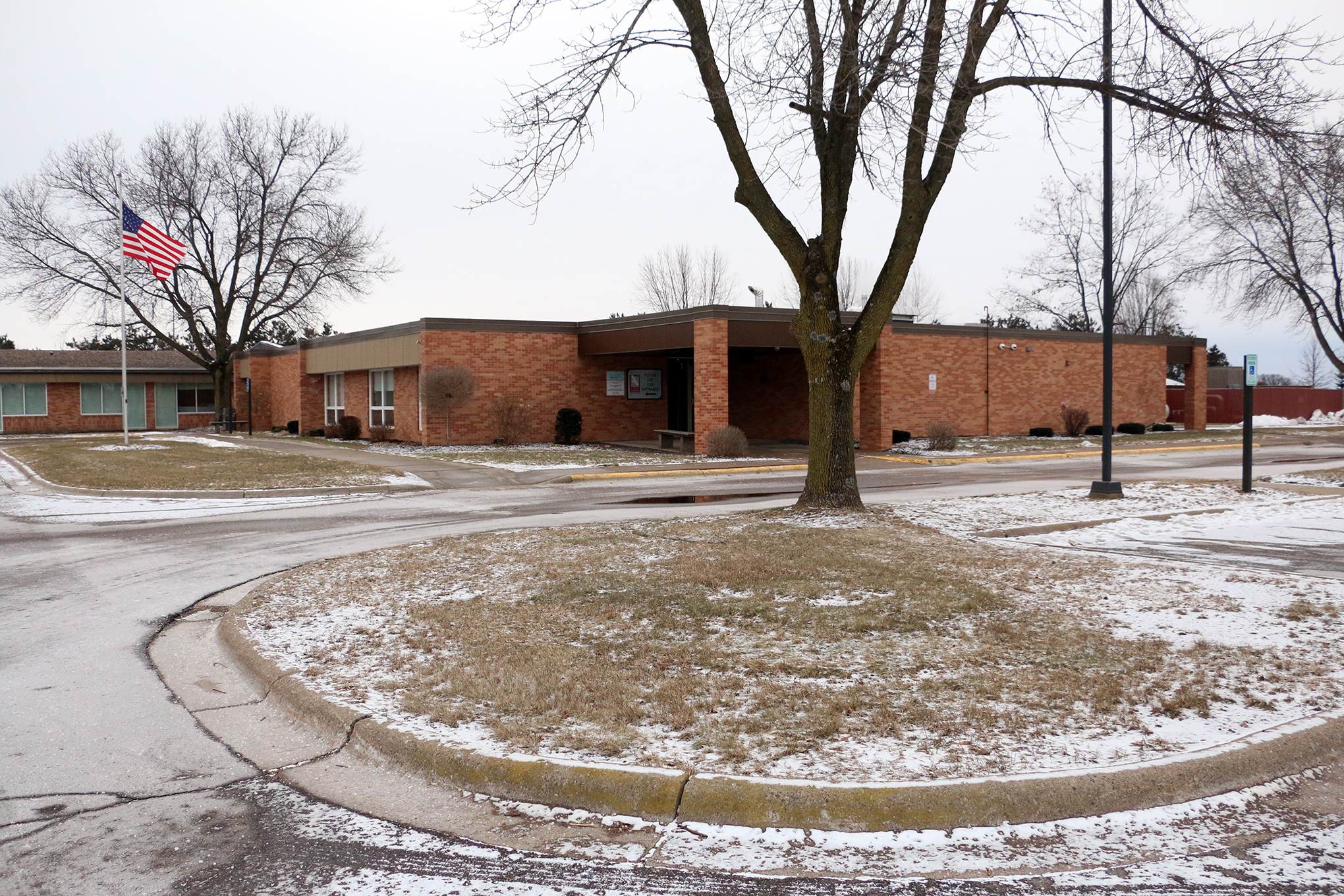
Republican lawmakers from western Wisconsin are calling on the state to pledge $1 million to help Lutheran Social Services reopen a substance abuse treatment facility in Chippewa Falls.
The former L.E. Phillips-Libertas Center was the region’s largest in-patient treatment center before it closed last year. It had been a staple of the alcohol and drug abuse treatment community in northwest Wisconsin for decades.
Its closure came with Hospital Sisters Health System’s “complete exit” from western Wisconsin. The treatment center — along with St. Joseph’s hospital in Chippewa Falls, Sacred Heart Hospital in Eau Claire and all Prevea clinics in the area — closed their doors in the early months of 2024.
Stay connected to Wisconsin news — your way
Get trustworthy reporting and unique local stories from WPR delivered directly to your inbox.
Lutheran Social Services of Wisconsin and Upper Michigan announced plans in December to purchase the former Libertas Center and reopen it as a 50-bed, in-patient substance abuse treatment facility for men.
To help offset the anticipated $3 million cost of buying and renovating the building, Republican lawmakers from western Wisconsin have introduced a bill that would require the state Department of Administration to give the nonprofit a $1 million grant.
LSS President and CEO Héctor Colón told WPR the rapid closure of the hospitals, clinics and treatment center “has left the area in desperate need of health care services, and very specifically, mental health and addiction services.”
“So, for us to be able to rise to the occasion and come forward to provide these much needed services is very much needed in this community right now,” Colón said.
During the bill’s public hearing before the Joint Committee on Mental Health and Substance Abuse Prevention Tuesday, Rep. Clint Moses, R-Menominee, said the closures “devastated” the region. He said the bill he introduced along with and Sen. Jesse James, R-Thorp, “can make a very big impact for a very small spend in a very quick period of time.”
“Reopening this facility as a substance use treatment facility will fill a significant void in the area’s growing mental health needs,” Moses said.
Amid testimony on the bill, Rep. Robyn Vining, D-Wauwatosa, noted Republicans have separated funding from other legislation introduced this session and are relying on the powerful Joint Finance Committee to authorize spending. She asked whether Moses and James had submitted a request to JFC for the $1 million. They said they have.
The finance committee has been withholding $15 million that was intended to bolster emergency department capacity at remaining hospitals in western Wisconsin after the closures last year.
While the legislation behind that funding was ultimately signed by Democratic Gov. Tony Evers, he used a partial veto to expand the scope of how the money could be used, stating he objected to “unnecessarily restricting crisis funding intended to address urgent healthcare access needs in western Wisconsin that exist well beyond hospital emergency departments.”
Republicans on the JFC who objected to the partial veto refused to release the funds. If the committee doesn’t act by June 30, the money will lapse back into the state’s general fund.
In an interview with WPR, James said Evers’ veto changed the bill’s scope from providing grants to expand emergency departments in Chippewa County and Eau Claire Counties to covering multiple services in a larger area.
“How far do you truly think $15 million is going to go? Because he also expanded … eligibility to 18 counties in the region. It totally defeats the emergency that we’re facing in our area,” James said.
James seemed more optimistic about his bill to help fund the reopening of the treatment center in Chippewa Falls. He said there “seems to be support” for the effort.
“I do see it, whether or not with the Democrat support, getting through,” James said. “And I do believe that the governor is going to support this.”
Wisconsin Public Radio, © Copyright 2025, Board of Regents of the University of Wisconsin System and Wisconsin Educational Communications Board.
Wisconsin
Former Badgers player takes lead after first round of Wisconsin State Women’s Open

Drone view of Erin Hills Golf, the site of the 2025 U.S. Women’s Open
Check out a drone view of Erin Hills Golf Course, the site of the 2025 U.S. Women’s Open May 29-June 1
The Wisconsin State Women’s Open began play on June 9 at La Crosse Country Club in Onalaska, and former University of Wisconsin golfer Chloe Chan was the only player to break par with a 1-under 71.
Chan made four birdies against three bogeys. She completed her senior year with the Badgers in the spring, with her best finish being a tie for fifth at the Diane Thomason Invitational. She was also a two-time Academic All-Big Ten honoree.
Her round gave her a one-shot advantage over defending champion Elise Hoven. Hoven, from Grafton, won the Open last year as an amateur.
The other 60 players in the field who finished were all above par.
The field will be cut to the low 24 scores and ties after the second round on June 10. The final 18 holes of play will take place on June 11.
Madison’s Kate Brody is in third place after shooting a 1-over 73.
Menomonie’s Sophia Connett, Brookfield’s Payton Haugen and Menomonee Falls’ Addison Roesch are tied for fourth at 3-over. Madison’s Bobbi Stricker is alone in seventh place at 4-over.
The top 10 was rounded out with Taitum Beck (Waterford) and Jessica Krattiger (Hartland) tied for eighth place at 5-over and Carly Moon (Baraboo), Allison Herring (Skillman, New Jersey), Madison Haugen (Brookfield) and Lauren Lupinek (Oconomowoc) tied at 6-over for 10th.
-

 West5 days ago
West5 days agoBattle over Space Command HQ location heats up as lawmakers press new Air Force secretary
-

 Alaska1 week ago
Alaska1 week agoInterior Plans to Rescind Drilling Ban in Alaska’s National Petroleum Reserve
-

 Technology1 week ago
Technology1 week agoMicrosoft will finally stop bugging Windows users about Edge — but only in Europe
-
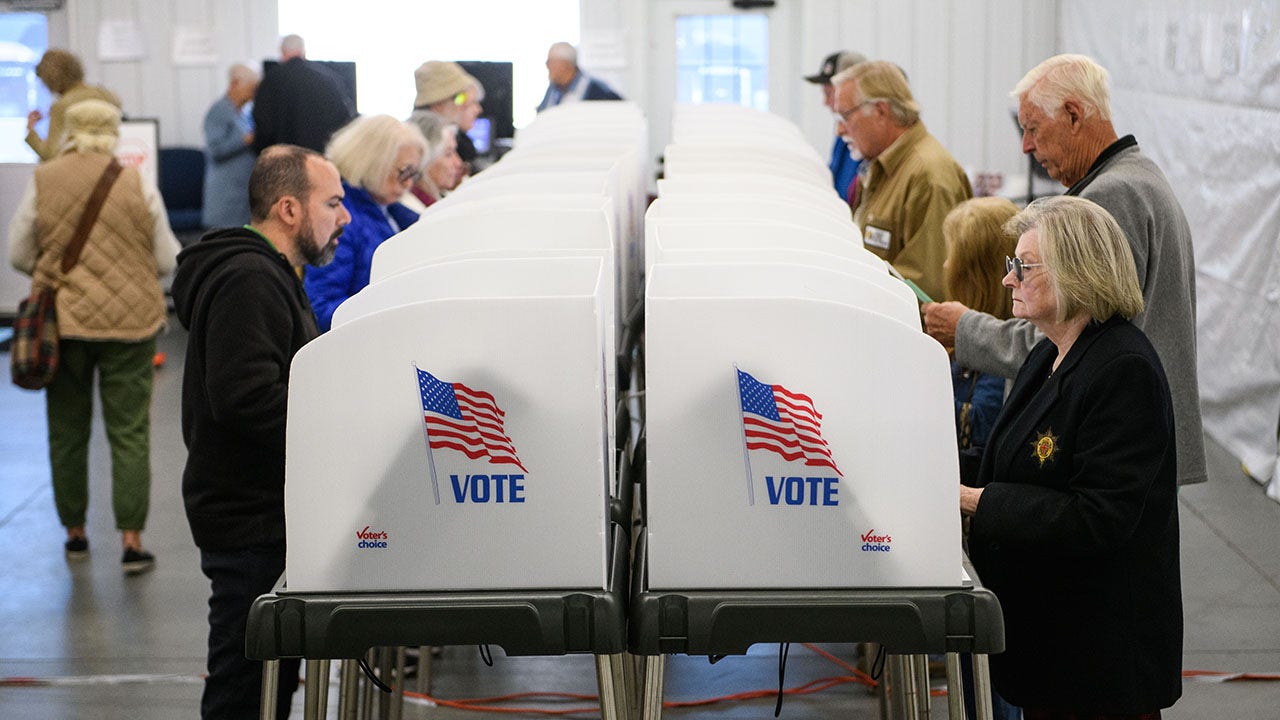
 Politics1 week ago
Politics1 week agoRed state tops annual Heritage Foundation scorecard for strongest election integrity: 'Hard to cheat'
-

 World1 week ago
World1 week agoTwo suspected Ugandan rebels killed in Kampala explosion
-

 Politics1 week ago
Politics1 week agoTrump pushes 'Big, Beautiful Bill' as solution to four years of Biden failures: 'Largest tax cut, EVER'
-

 Culture1 week ago
Culture1 week agoDo You Know the Jobs These Authors Had Before They Found Literary Success?
-

 World1 week ago
World1 week agoEU trade chief to meet US counterpart in Paris amid tariff tensions
